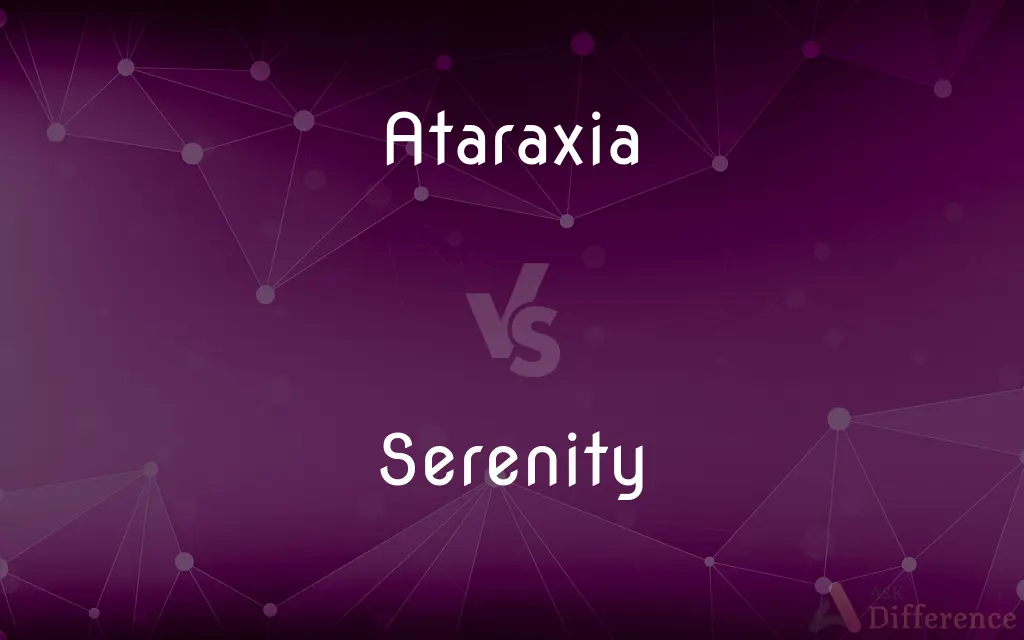Ataraxia vs. Serenity — What's the Difference?

Difference Between Ataraxia and Serenity
ADVERTISEMENT
Compare with Definitions
Ataraxia
Ataraxia (Greek: ἀταραξία, from alpha privative ("a-", negation) and tarachē "disturbance, trouble"; hence, "unperturbedness", generally translated as "imperturbability", "equanimity", or "tranquility") is a Greek term first used in Ancient Greek philosophy by Pyrrho and subsequently Epicurus and the Stoics for a lucid state of robust equanimity characterized by ongoing freedom from distress and worry. In non-philosophical usage, the term was used to describe the ideal mental state for soldiers entering battle.Achieving ataraxia is a common goal for Pyrrhonism, Epicureanism, and Stoicism, but the role and value of ataraxia within each philosophy varies in accordance with their philosophical theories.
Serenity
The state or quality of being serene.
Ataraxia
Tranquility of mind; absence of mental disturbance.
Serenity
The state of being serene; calmness; peacefulness.
Ataraxia
Perfect peace of mind, or calmness.
ADVERTISEMENT
Serenity
A lack of agitation or disturbance.
Ataraxia
Peace of mind
Serenity
A title given to a reigning prince or similar dignitary.
Serenity
The quality or state of being serene; clearness and calmness; quietness; stillness; peace.
A general peace and serenity newly succeeded a general trouble.
Serenity
Calmness of mind; eveness of temper; undisturbed state; coolness; composure.
I can not see how any men should ever transgress those moral rules with confidence and serenity.
Serenity
A disposition free from stress or emotion
Serenity
The absence of mental stress or anxiety
Share Your Discovery

Previous Comparison
Tablespoon vs. Spoonful
Next Comparison
Dingy vs. Dinghy














































